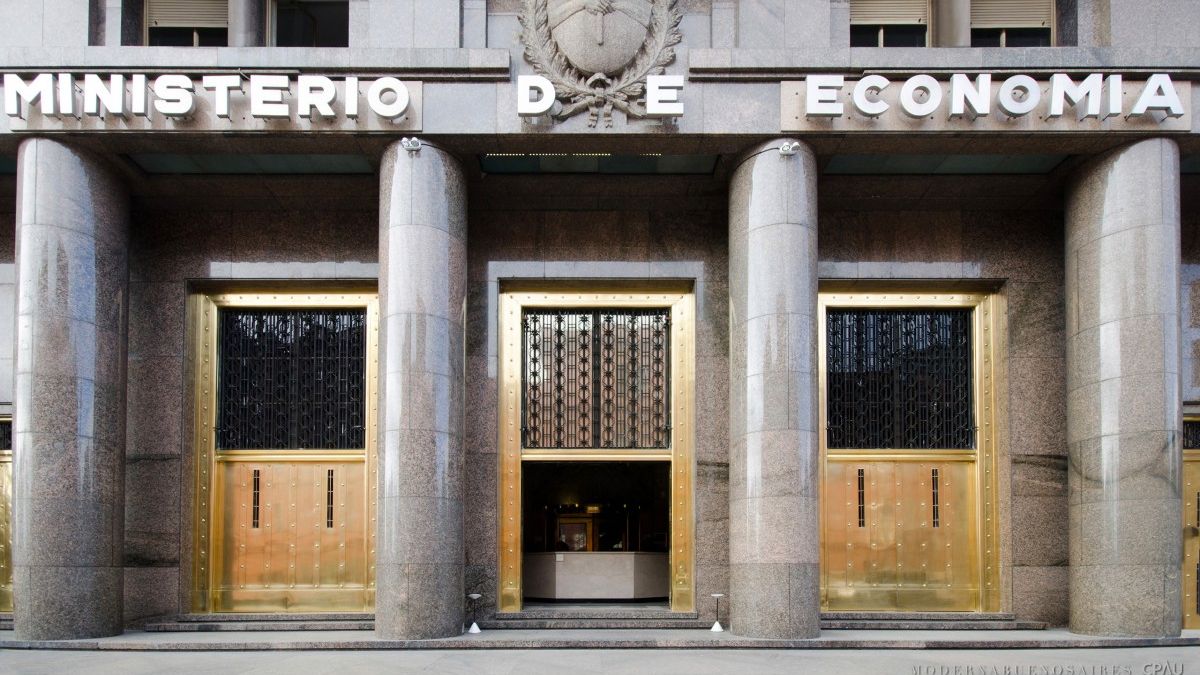Astride a sharp rise in rates, which left effective annual yields in positive territory (around 107%), and the swap that cleared a good part of the maturities of the August-October quarter, the Ministry of Economy managed to accelerate placements of new debt in pesos. The Ministry of Finance, headed by Eduardo Setti, closed on Monday the first tender in September with a net funding of $228,004 million. Thus, in the absence of another auction, a plus has already been guaranteed over the nearly $140,000 million that will expire between now and the end of the month. A surplus that will now aim to expand.
The goal of net indebtedness for the last quarter with which they worked in the Palacio de Hacienda was $700,000 million, with which they hoped to close the financing of the 2.5 points of GDP of primary deficit agreed with the Fund for the year 2022. But the numbers are subject to revision. For example, if the disbursements of US$1.2 billion that the IDB promised to make between September and December during Sergio Massa’s tour of the United States are confirmed and more funds from the World Bank are added, the need could be alleviated somewhat. of capturing resources in the debt market in pesos, they count in the official offices.
For now, the IMF announced on Monday that the technical agreement between the Government and the agency’s staff contemplates a ceiling for monetary financing of the deficit of 0.8% of GDP this year (below the 1% objective originally set in the programme), as a sign of tightening monetary policy.
The biggest obstacle for the rest of the year appears in the last two months: in November, debt securities in pesos for the equivalent of US$5,550 million mature and in December, US$6,018 million. Official sources told this newspaper that it is most likely that, in order to renew these maturities, a new voluntary exchange will be launched, as the current management already did at the beginning of August, as soon as Massa took office. It will be resolved closer to that date.
The electoral barrier and the plan
The premise handled by Finance is to continue extending the placement terms, with the focus on overcoming the barrier that next year’s election represents for the main market agents. It is not by chance since the force that wins the elections will have to define its financial policy. Many investors echoed the ghost of the reprofiling generated by the precedent of 2019, when the government of Mauricio Macri chose to default the debt in pesos. A ghost that some members of the opposition took it upon themselves to revive in June, as the deputy of Together for Change Ricardo Buryaile publicly acknowledged at the time. That month the bullfight was unleashed, which had as other condiments a more adverse international context and a policy of lower rates than the current ones.
However, once the height of the financial and foreign exchange pressures in June and July has been overcome (rise in rates and exchange rates in Economy through), the Government hopes to be able to evade the electoral stumbling block “step by step”, which they recognize exists. “The great challenge is to achieve the long-term curve,” they point out. They celebrate having exceeded the PASO date in the last swap with a dual bond to September 2023. Going forward, officials will seek to progressively approach 2024 in future placements and conversions, with the idea of distributing maturities throughout the time and not generate large towers, as the market usually calls the months with the highest commitments. “The idea is to stretch terms, approaching the end of 2023 and starting to place 2024,” they say.
To do this, Ámbito learned, they will appeal to sustain slightly positive real rates (with a spread above those paid by the BCRA) and will offer instruments demanded by the market. In the current context, for example, securities indexed to inflation are the only ones that allow longer-term placement. And in the recent tender about two thirds of the amount placed went to two letters with these characteristics (Lecer).
In fixed-rate bills, the possibilities of extending the terms are more modest today. But, for now, in Economy they will try to avoid placements of Lelites, very short-term letters exclusively for common investment funds (FCI) and pre-cancelable, launched by Martín Guzmán in October of last year. “The FCIs are not using them as much, they are going to the Ledes because they have better rates and because they no longer have such a large outflow of funds, so they do not need to have such a short and pre-cancelable instrument”, explain the sources consulted.
Source: Ambito
David William is a talented author who has made a name for himself in the world of writing. He is a professional author who writes on a wide range of topics, from general interest to opinion news. David is currently working as a writer at 24 hours worlds where he brings his unique perspective and in-depth research to his articles, making them both informative and engaging.




